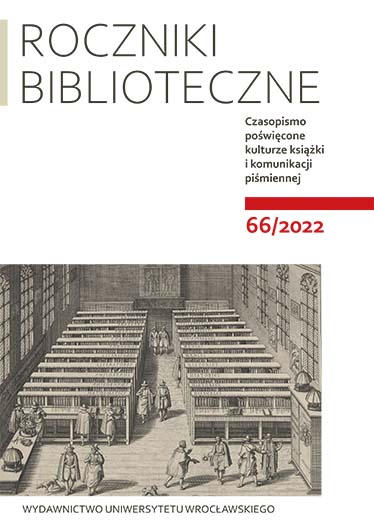

Artykuły i materiały

Juraj Tesák Mošovský was an important Protestant church dignitary and one of the most prolific humanist writers among Slovak authors who found professional employment in the Kingdom of Bohemia at the turn of the 17th century. In total, the professional literature lists more than 38 titles of his Czech and Latin as well as bilingual Czech-Latin writings. Tesák is the author of religious-educational moral treatises, reflections, sermons and occasional verse works. His work was mostly theological in nature and probably revealed Mošovský’s inclination towards Utraquism. Around 1577, he was consecrated (ordained) and signed the church order of Utraquist priests. Therefore, the well-known Jesuit censor Antonín Koniaš included Tesák’s writings in his index of forbidden books, and during the period of Counter-Reformation and recatholicisation in Bohemia, they were destroyed en masse. The study provides an overview of Mošovský’s prints, dividing them into two categories: the files of Tesák Mošovský which are not recorded in the indexes of prohibited books (11 items) and his unpreserved writings (21 items). A list of the prints that were published twice is also added (3 items). The initial analysis of what is known about the prints that were supposed to be destroyed (and have not been preserved to this day) showed that they were mostly prints that, according to Koniaš, contained heretical teachings that did not correspond to the teachings of the Catholic Church. Among them were also writings in which Tesák Mošovský expressed a positive attitude towards the persons who were considered heretics. Finally, there were prints that referred to Hussiteism and older Hussite songs. It is natural that these were the reasons why so many prints of J. Tesák Mošovský were condemned to destruction, and why even literary history during the period of socialism was not interested in them.